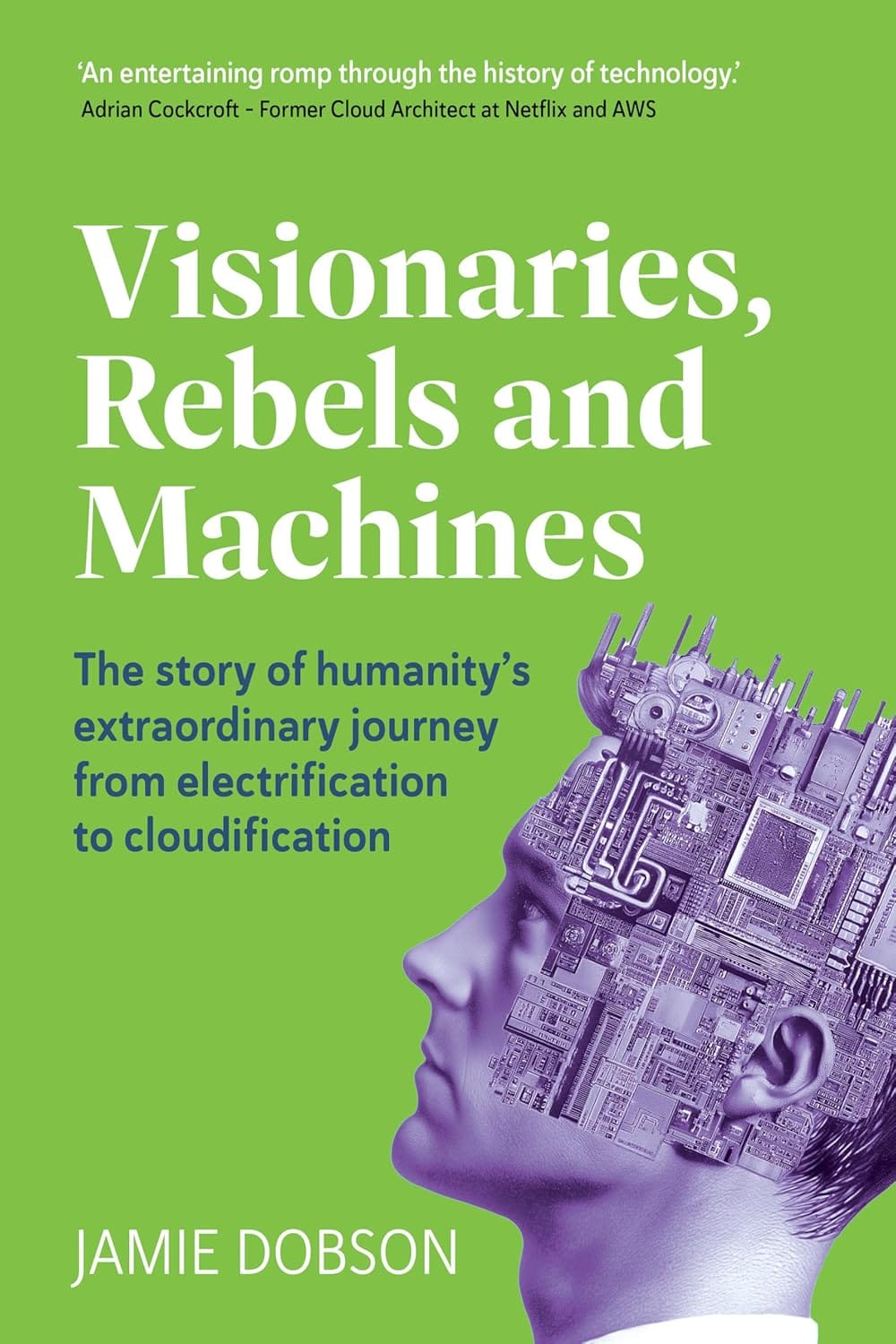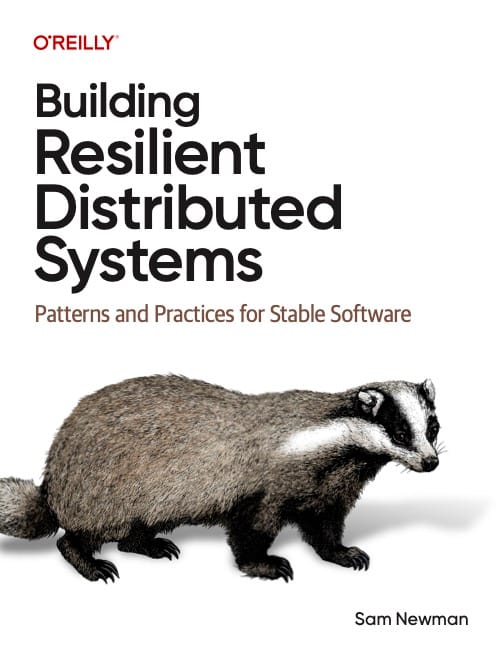Visionaries, Rebels, Machines, And A June Update

Last week, Jamie Dobson's book "Visionaries, Rebels, Machines", was released. I was lucky enough to get an advanced copy of Jamie's book.
This book is a fun, fast-moving journey from the birth of electricity to the current age of the cloud. Along the way you'll hear stories about the development of ENIAC, why at one point video cassettes of movies were sold for $250 (adjusted for inflation), and the work that lead to the current generation of AI.
The book is available now (from the usual places), although as always with these things, if you want your local bookshop to still exist in a year from now, consider ordering it from there instead.
Book Update
Yesterday I finally managed to find a structure for the progressive collapse chapter that I am happy with. The message broker chapter is already with reviewers, with feedback coming in, and so we should be able to push it to early access around the middle of July.
As always, subscribers to O'Reilly can read the early access chapters as they become available.
CraftConf Highlights
I finished the last newsletter whilst still at CraftConf, so hadn't had a chance to distill down my highlights. With the recordings now available, I wanted to share some of my favorite talks. I then realised I had a very long list of great talks to pick from, and had to worry about how long this newsletter was getting. So I decided to pick three talks that might go a bit under the radar, but which were all excellent for different reasons:
- Modernising architecture & ways of working at Saxo Bank. Simon Rohrer shared some great insights around how Saxo bank make things happen at scale, in addition to highlighting the almost fractal-nature of their organisation.
- The Hive: A scaling and supple architecture style for your growing and complex domain. They need to work on their talk title, but this talk from Julien Topçu and Thomas Pierrain looks at the detail around building a modular monolith in such a way that deploying the modules as microservices at some later stage is mroe appropriate. I've long talked about variations of the modular monolith as a hedging architecture (paying some cost now to make things easier later), but Thomas and Julien's talk puts a lot of great detail around what you need to do to make this happen.
- Legacy Architecture Migration Patterns. Another case study, this one from Nick Tune and Guillaume Rahbari, looks at Payfit's attempts to migrate away from (several) legacy systems. The best case studies are those which give practical advice, but which are also honest about what didn't work as well - and this talk is a great example of that.
Things I Have Found
- In the hyped sector of GenAI coding, the emergence of agentic AI models has opened up a whole new field of opportunity - and perhaps security headaches too. Simon Willison has done a great job of highlighting the lethal trifecta which can magnify the risks of using agents to steal your data. As always with Simon, this topic is well researched, and the distillation of the ideas here is incredibly useful.
- Related, the use of Model Context Protocol (MCP), has turbocharged what AI Agents can do. In a nutshell, MCP frameworks allow AI Agents to communicate with other systems to make them more powerful. In a SDLC context, this could include things like deploying software. In this article, Jim Gumbley and Lilly Ryan highlight how the combination of AI Agents and MCP can threaten the software supply chain. This isn't a doom and gloom article - there is some sensible good advice in here for those of you who want to use MCP as part of software development, but want to mitigate the legitimate security issues.
- In this relatively old talk (2019), Jessica Tai shares AirBnb's experience of moving to a microservice architecture at scale. I revisited this talk as I was putting together some new material on data access patterns for microservices. This talk does a great job of showing why AirBnb needed to change, and how it went about breaking down a migration into a set of discrete steps. Big changes are made up of lots of little changes, and managing that in a company that is growing fast and can't sit still is super challenging.
- The DORA reports are always good reading, and in recent times the researchers have started looking at the impact of AI in software delivery. In this recent snippet from a longer podcast, Jamie Dobson sat down to chat with Nathan Harvey about the most recent findings, which appear to show that whilst the use of AI seems to make delivery teams happier, throughput and delivery suffer! Expect this to have zero impact to the already fully entrenched sides in the "AI For Software Delivery" conflict.
Upcoming Events
- GOTO Copenhagen October 1-3. I'll be delivering workshops on the topics of Microservice Communication and Resilient Distributed Systems.
- Trifork Masterclass, Amsterdam, October 30-31. This is a two day public workshop focuses on all things Microservices.
- LeadDev Berlin, November 3-4. is an event I've admired from afar for several years, and so it's great that I'll be able to speak this time around. I
- MQ Summit, Berlin, November 6. Also in Berlin, I'll be delivering a Keynote at the inaugural MQ summit. This event focuses on all things message broker! The call for papers is still open for a short period of time...
That's all for this month - see you all in July!


